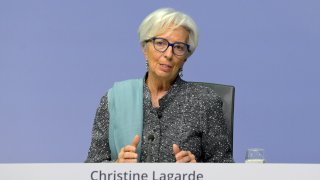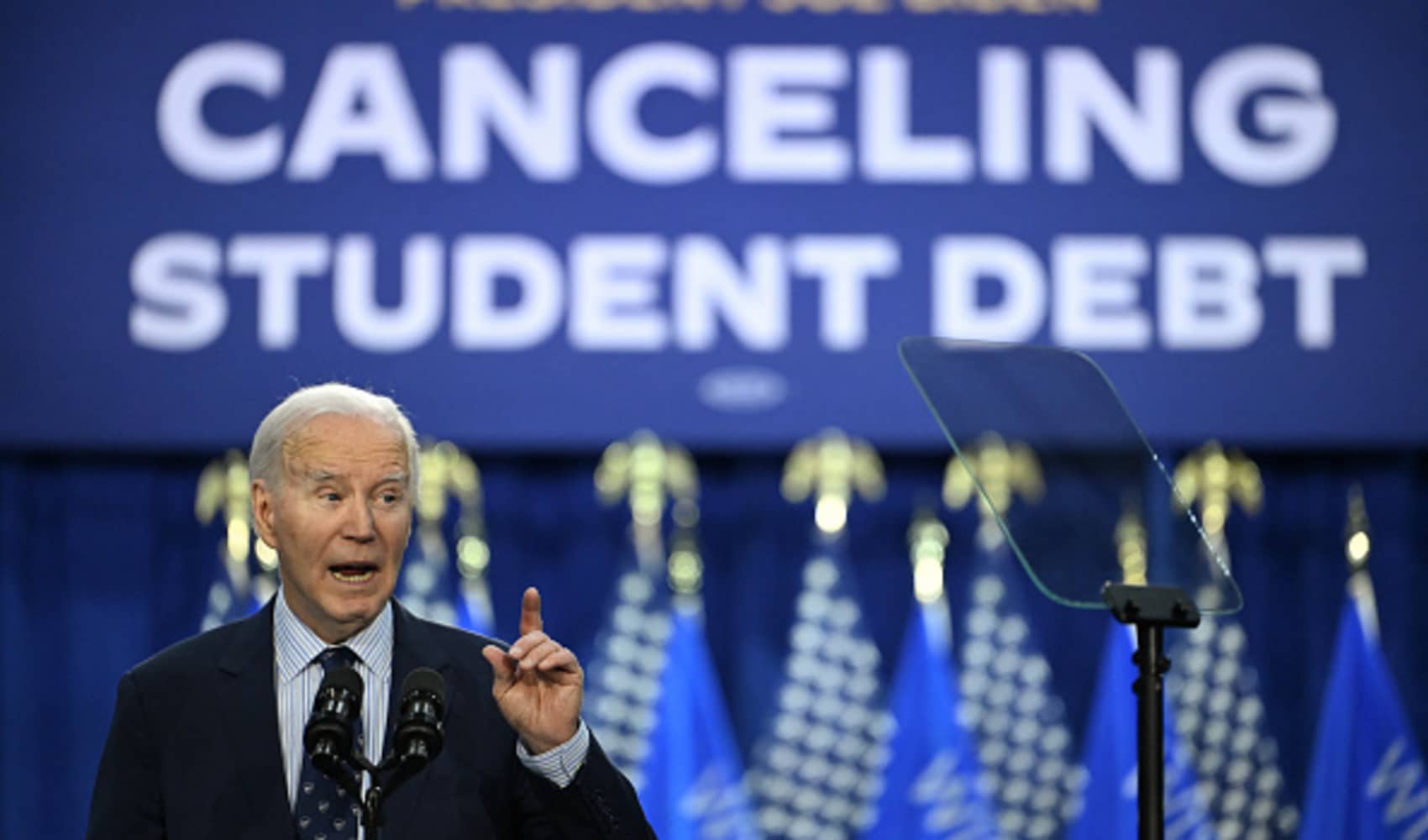
- The ECB's bond purchases in the first quarter have been lower than usual and the central bank said it expected to ramp up its purchases going forward.
- Bond yields in the euro zone have been rising since February, leading to fears about a risk to the economic recovery in Europe.
- However markets were reassured by the ECB's statement Thursday, and bond yields fell in the euro zone.
LONDON — The European Central Bank has said it expects to increase its bond purchases "significantly" next quarter, after borrowing costs rose in the region.
The ECB opted on Thursday to leave its Pandemic Emergency Purchase Program, or PEPP, unchanged, at a total of 1.85 trillion euros ($2.21 trillion) due to last until March 2022.
However, the central bank's bond purchases in the first quarter have been lower than usual and the Frankfurt-based institution said it expected to ramp up its purchases going forward.
Get Connecticut local news, weather forecasts and entertainment stories to your inbox. Sign up for NBC Connecticut newsletters.
"Based on a joint assessment of financing conditions and the inflation outlook, the Governing Council expects purchases under the PEPP over the next quarter to be conducted at a significantly higher pace than during the first months of this year," the ECB said in a statement.
Bond yields in the euro zone have been rising since February, following their United States counterparts higher after President Joe Biden announced a massive fiscal stimulus plan. It has led to fears that rising yields could derail the economic recovery in Europe by raising borrowing costs for countries already struggling with the coronavirus crisis.
However, markets were reassured by the ECB's statement Thursday, and bond yields fell in the euro zone. The central bank's commitment to more purchases will support bond prices and in turn helps to keep borrowing costs lower. Bond yields move inversely to prices.
Money Report
"The Governing Council will purchase flexibly according to market conditions and with a view to preventing a tightening of financing conditions that is inconsistent with countering the downward impact of the pandemic on the projected path of inflation," the ECB added in its statement.
Speaking to CNBC earlier this month, ECB member Jens Weidmann said that changes to central bank's government bond-buying program could be implemented in an effort to calm bond markets.
However, this is a tricky issue for the central bank, which cannot be seen to act directly to address bond yields as this isn't part of its mandate. Any such moves could spark criticism that it is protecting euro zone governments from market dynamics, and raise expectations that it could always act when yields rise.
"We are not doing yield curve control," ECB President Christine Lagarde said at a press conference Thursday.
The central bank also decided to keep interest rates unchanged.
Economic outlook
Back in December, the ECB forecast that gross domestic product (GDP) in the euro zone would rise by 3.9% this year and 4.2% in 2022. In its latest estimates out on Thursday, the ECB revised its GDP for 2021 to 4% and to 4.1% for 2022.
"Looking ahead, the ongoing vaccination campaigns, together with the gradual relaxation of containment measures – barring any further adverse developments related to the pandemic – underpin the expectation of a firm rebound in economic activity in the course of 2021," Lagarde said.
However, she noted that the ongoing pandemic continues to pose a risk to the economy and added that consumers remain cautious about the outlook.
"Overall, the risks surrounding the euro area growth outlook over the medium term have become more balanced," Lagarde said, mentioning vaccination campaigns, fiscal stimulus and better prospects for global demand.
Some EU countries remain in lockdown and others have tough social restrictions still in place. In addition, the rollout of Covid vaccines has been slow in the region. This could add further pressure on the 19 euro zone economies, and hinder their economic recoveries.
The ECB has called on the various governments to step up their fiscal responses, arguing that the burden cannot lie solely on the shoulders of the central bank. The European Union agreed to an unprecedented level of fiscal stimulus last year, but these funds are only due to be disbursed from this summer onward.
On Thursday, Lagarde spoke about "the importance of (these funds) becoming operational without delay."
In terms of inflation, the ECB expects some volatility in the coming months.
"On the basis of current oil futures prices, headline inflation is likely to increase in the coming months, but some volatility is expected throughout the year reflecting the changing dynamics of the factors currently pushing inflation up. These factors can be expected to fade out of annual inflation rates early next year," Lagarde said.
The ECB estimates an inflation rate of 1.5% in 2021 and of 1.2% in 2022. The ECB's mandate is to keep prices lower but close to 2% over the medium term.
Market reaction
Euro zone banks experienced a sell-off on the back of the ECB's comments. The sector fell more than 1% shortly after the central bank issued its latest decision.
The dovish stance of the central bank could mean that lenders in the region will continue to struggle in the low interest rate environment.






